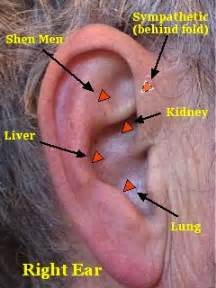Maine to begin National Acupuncture Detox Association pilot project
August 10, 2017
 by John Weeks, Publisher/Editor of The Integrator Blog News and Reports The Maine State Legislature recently passed a bill requiring officials from its Department of Health and Human Services program, MaineCare, to seek authorization from the national Centers for Medicare and Medicaid Services to explore the potential value of acupuncture and it’s benefit on residents with substance abuse issues. The newly passed legislation, An Act To Establish a Pilot Project for Medicaid Reimbursement for Acupuncture Treatment of Substance Abuse Disorders, will be managed through Maine’s Office of Substance Abuse and Mental Health Services. If approved by the federal government and implemented by Maine’s legislature, citizens will have access to a two-year pilot project “to treat alcohol abuse disorders, substance abuse disorders, and co-occurring disorders using the National Acupuncture Detoxification Association [NADA] auricular acupuncture protocol.”
by John Weeks, Publisher/Editor of The Integrator Blog News and Reports The Maine State Legislature recently passed a bill requiring officials from its Department of Health and Human Services program, MaineCare, to seek authorization from the national Centers for Medicare and Medicaid Services to explore the potential value of acupuncture and it’s benefit on residents with substance abuse issues. The newly passed legislation, An Act To Establish a Pilot Project for Medicaid Reimbursement for Acupuncture Treatment of Substance Abuse Disorders, will be managed through Maine’s Office of Substance Abuse and Mental Health Services. If approved by the federal government and implemented by Maine’s legislature, citizens will have access to a two-year pilot project “to treat alcohol abuse disorders, substance abuse disorders, and co-occurring disorders using the National Acupuncture Detoxification Association [NADA] auricular acupuncture protocol.”  The NADA protocol, described here by its earliest and most ardent proponent, psychiatrist Michael Smith, MD, involves the insertion of needles, or the placement of beads, on the same five points in the ear. Developed in the 1960s in Lincoln Hospital in South Bronx, New York, the treatment is often offered by non-acupuncturists who are certified in the NADA protocol. Twenty-three states have certification laws. Under the Maine statute, treatment must be performed by acupuncturists licensed in the state who have also completed the training to perform the NADA protocol. The protocol is for drug detoxification and for co-occurring disorders that accompany addiction, depression, anxiety, PTSD, insomnia, and pain. Potential benefits, which include more optimistic attitudes, reduced anxiety, and fewer episodes of sleep disturbances, are discussed here.
The NADA protocol, described here by its earliest and most ardent proponent, psychiatrist Michael Smith, MD, involves the insertion of needles, or the placement of beads, on the same five points in the ear. Developed in the 1960s in Lincoln Hospital in South Bronx, New York, the treatment is often offered by non-acupuncturists who are certified in the NADA protocol. Twenty-three states have certification laws. Under the Maine statute, treatment must be performed by acupuncturists licensed in the state who have also completed the training to perform the NADA protocol. The protocol is for drug detoxification and for co-occurring disorders that accompany addiction, depression, anxiety, PTSD, insomnia, and pain. Potential benefits, which include more optimistic attitudes, reduced anxiety, and fewer episodes of sleep disturbances, are discussed here.  Acupuncturist Mary Beth Hassett, LAc, Dipl OM, said in an interview that the prime sponsor for the bill is Maine Representative Richard Malaby (R). She says that the legislation was passed in the context of Maine’s Opioid Task Force, which filed a May 2017 report discussing recommendations to address the state’s opioid crisis. Notably, the Task Force appears to have had no integrative practitioners represented, and the report has no focus in acupuncture or integrative strategies. The new act specifically requires that the department consult with the Maine Association of Acupuncture and Oriental Medicine to establish treatment standards. Hassett said that acupuncturists in the state have reached out to Robert Davis, MS, LAc, the past president of the Vermont Acupuncture Association and lead on the state’s ongoing pilot project for acupuncture-based pain management, for guidance on “how to best conduct the two-year study.” Davis is also the co-president of the global Society for Acupuncture Research (SAR), through which he developed the research protocol for his state’s pilot. Remarkably, the Maine legislation, while a pilot project, presumes a conclusion. Through the federal waiver to cover acupuncture services, Maine lawmakers anticipate that the services will be “reimbursable as allowed under the United States Social Security Act.” They also say that the program itself must “be cost-neutral or result in savings to the MaineCare program.” A report, to be compiled at the end of the pilot, will recommend whether the project should be extended. Comment: A truism in U.S. politics is that, when federal lawmakers fail to provide leadership, change processes frequently begin through models in different states. Maryland, for instance, passed a law to effectively cut expenditures to hospitals. California is moving toward single payer. And, in the integrative health space, multiple states—most recently Ohio—have begun programs to implement coverage of acupuncture.
Acupuncturist Mary Beth Hassett, LAc, Dipl OM, said in an interview that the prime sponsor for the bill is Maine Representative Richard Malaby (R). She says that the legislation was passed in the context of Maine’s Opioid Task Force, which filed a May 2017 report discussing recommendations to address the state’s opioid crisis. Notably, the Task Force appears to have had no integrative practitioners represented, and the report has no focus in acupuncture or integrative strategies. The new act specifically requires that the department consult with the Maine Association of Acupuncture and Oriental Medicine to establish treatment standards. Hassett said that acupuncturists in the state have reached out to Robert Davis, MS, LAc, the past president of the Vermont Acupuncture Association and lead on the state’s ongoing pilot project for acupuncture-based pain management, for guidance on “how to best conduct the two-year study.” Davis is also the co-president of the global Society for Acupuncture Research (SAR), through which he developed the research protocol for his state’s pilot. Remarkably, the Maine legislation, while a pilot project, presumes a conclusion. Through the federal waiver to cover acupuncture services, Maine lawmakers anticipate that the services will be “reimbursable as allowed under the United States Social Security Act.” They also say that the program itself must “be cost-neutral or result in savings to the MaineCare program.” A report, to be compiled at the end of the pilot, will recommend whether the project should be extended. Comment: A truism in U.S. politics is that, when federal lawmakers fail to provide leadership, change processes frequently begin through models in different states. Maryland, for instance, passed a law to effectively cut expenditures to hospitals. California is moving toward single payer. And, in the integrative health space, multiple states—most recently Ohio—have begun programs to implement coverage of acupuncture.  Credit the Maine association for immediately reaching out to Davis and the SAR, whose pilot project was highlighted on Integrative Practitioner last year. Having the insights of policy-smart researchers like Claudia Witt, MD and Hugh Macpherson, PhD, MbAc, is to access a goldmine. Distinguishing interest here are two features. One is the focus not on pain, per se, but on substance abuse. One might, however, anticipate a cross-over to the opioid and heroin-addicted populations. This might provide insight into a portion of the pain population that is already addicted. The other fascinating choice is the Maine legislature’s decision to limit to just the NADA protocol. Hassett has shared that she believes that “for the substance abuse crisis and for addiction, NADA makes the most sense for this population.” Her point is well made—many parts of the state are not well-served by licensed acupuncturists. A workforce of certificated NADA practitioners can more readily be assembled. Yet, the headlines have read “acupuncture.” The judgement on success or failure will also likely be presented as a judgement on all of acupuncture and Oriental medicine for the population served. Is this pilot project like throwing a fighter into the ring with one hand behind its back? The legislature would perhaps have more appropriately engaged its collaboration with Maine acupuncturists on designing a pilot that features, but is not limited to, the NADA protocol.
Credit the Maine association for immediately reaching out to Davis and the SAR, whose pilot project was highlighted on Integrative Practitioner last year. Having the insights of policy-smart researchers like Claudia Witt, MD and Hugh Macpherson, PhD, MbAc, is to access a goldmine. Distinguishing interest here are two features. One is the focus not on pain, per se, but on substance abuse. One might, however, anticipate a cross-over to the opioid and heroin-addicted populations. This might provide insight into a portion of the pain population that is already addicted. The other fascinating choice is the Maine legislature’s decision to limit to just the NADA protocol. Hassett has shared that she believes that “for the substance abuse crisis and for addiction, NADA makes the most sense for this population.” Her point is well made—many parts of the state are not well-served by licensed acupuncturists. A workforce of certificated NADA practitioners can more readily be assembled. Yet, the headlines have read “acupuncture.” The judgement on success or failure will also likely be presented as a judgement on all of acupuncture and Oriental medicine for the population served. Is this pilot project like throwing a fighter into the ring with one hand behind its back? The legislature would perhaps have more appropriately engaged its collaboration with Maine acupuncturists on designing a pilot that features, but is not limited to, the NADA protocol.



















SHARE